In the summer of 2024, the Civic-Geospatial Analysis and Learning Lab (formerly the Civic Innovation Lab) welcomed 48 interns, with 33 working in South Bend and 15 through the Elkhart Catalyst program. Together, the interns worked on 10 projects addressing issues such as neighborhood development, transportation and the environment.
Elkhart Recap
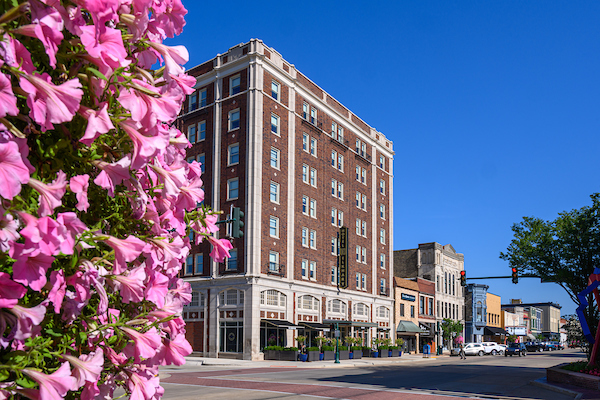
Connectivity and Walkability Project
The Walkability project interns assessed the pedestrian-friendliness of downtown Elkhart. They gathered various data, including surveys and used heart rate trackers, to formulate potential solutions for making downtown Elkhart safer and more welcoming.
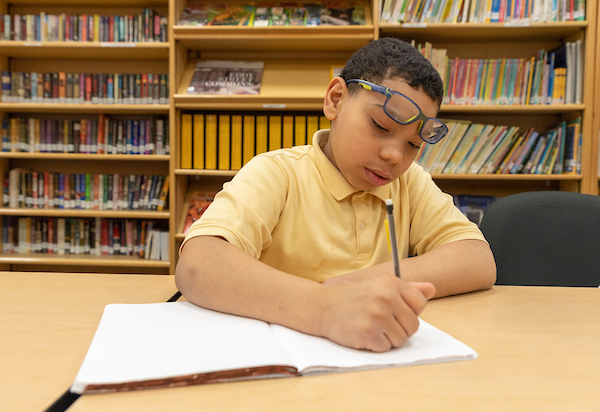
Igniting a love for learning
The Elkhart Education Foundation (EEF) collaborates with Elkhart Community Schools (ECS) to amplify community support and guarantee that every student receives essential resources, opportunities, and experiences. This team developed curriculum and surveyed local summer camps to learn more about what makes a successful summer program. The team also helped foster a passion for learning by implementing innovative and engaging educational methods.
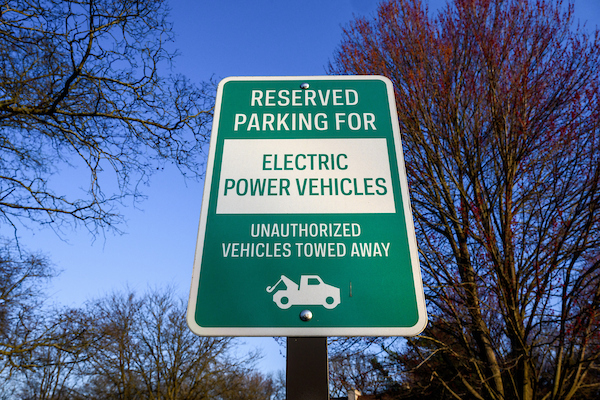
Thor Energy Profile Analysis
Elkhart Catalyst Interns and THOR Industries partnered to create an analytical view of electrical consumption in three RV models. Through their own research the interns found device specifications for all devices in each RV, allowing them to accurately detail the usage of electricity throughout a 24-hour period of standard RV usage.
South Bend Recap
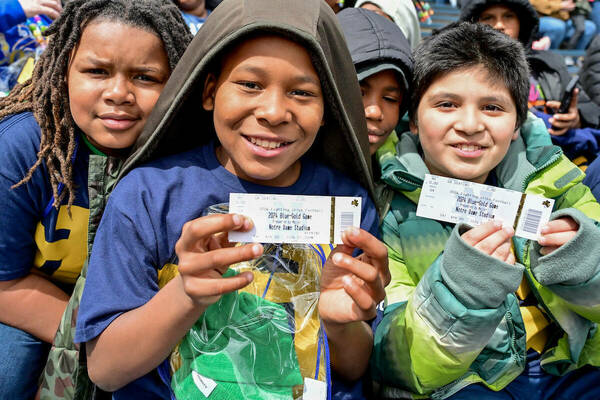
Together Irish
In celebration of 160 years of Hispanic and Latinx life at the University of Notre Dame, the Together Irish initiative has chosen to highlight this vibrant community. This project aims to develop strategies to leverage the preexisting interest in Notre Dame Athletics to build a sustainable relationship with local partners. Through intentional civic engagement, the university, its student-athletes, and the Hispanic and Latinx populations are beginning to foster relationships that unite the abundant resources each community possesses. The team collaborated with community partners to coordinate an on-campus event to bring families to Notre Dame and organized a rotational system to mobilize student-athletes to off-campus sites.
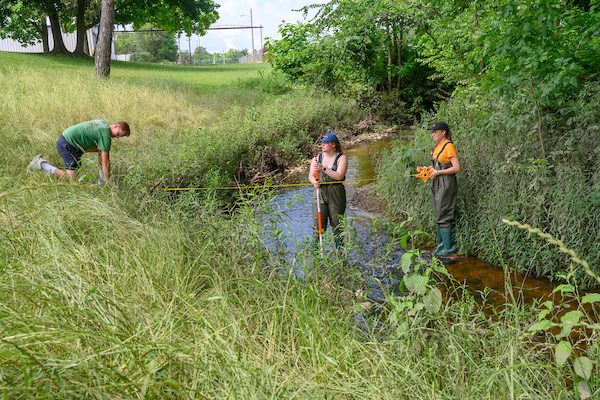
Bowman Creek Hydrologic Study
Bowman Creek in South Bend picks up pollutants from agricultural and industrial activities, reducing its water quality before flowing into the St. Joseph River and Lake Michigan. Our team collected water samples and measured flow rates at six locations along the creek over the span of seven weeks. We gathered data on the creek’s health and provided recommendations for future community-based restoration projects. Key objectives include water sampling and analysis, installing flow rate sensors, mapping results in ArcGIS, and engaging with local residents for their input as well as initiating an educational program to engage the youth in our community, teaching them about water quality and environmental stewardship in the spring of 2025. While we won’t conduct restoration projects during this period, we will report back with a summary for each site that includes descriptions and data located on the storymap published in Arcgis. Based on what we learnt from our meetings with SOAR and feedback from the community we recommended educational initiatives in the Spring such as presentations about Bowman creek to the Boys and girls club.
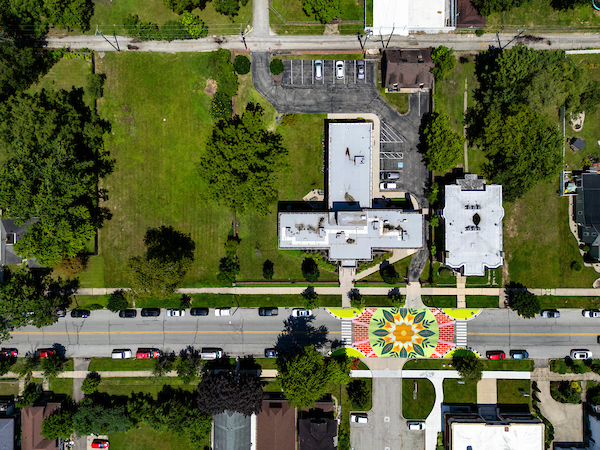
Near West Greenway
The Near West Side Neighborhood has been working on the Greenway project for about 5 years now. The goal is to make a “string of pearls” that interconnects several landmarks in the neighborhood. It stretches from the Kroc Center to the City Cemetery, and also includes sites such as the History Museum and the Civil Rights Heritage Center. Our project focuses on transforming the empty lot next to the LCIL building into a connective walkway and recreational space for people of all ages. We surveyed neighborhood residents and local business owners to see what should be included in the park. Based on this feedback, we created design iterations to present to the community.
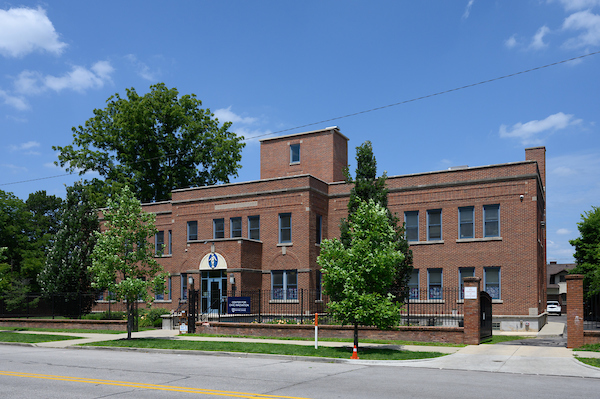
Environmental Sensing
The Environmental Sensing team sought to collect and analyze city air quality data in hopes of improving community awareness and prompting city action to mitigate related problems. The project team worked in collaboration with the Department of Innovation & Technology and TELLUS Network Solutions to install a sensor at the LCIL. The main objective of this project was to explore the capabilities of TELLUS’s technology alongside engaging with the community on the matter of air quality. The team aimed to lay the groundwork for the long-term success of this project by creating a program to efficiently retrieve data from TELLUS’s application programming interface, investigating the need for sensor calibration, and creating educational resources for a K-12 audience.
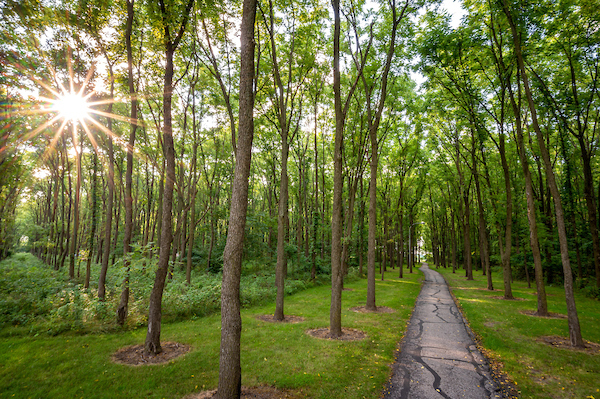
EPA Tree Analysis
Urban communities in South Bend face significant climate challenges, including intense heat waves, flooding, and poor air quality, which are exacerbated due to limited green infrastructure. Expanding the Urban Tree Canopy (UTC) would improve sustainability and community wellbeing. EnFocus, in collaboration with the City of South Bend, received a $500,000 EPA Environmental Justice Community Problem Solving grant to enhance urban sustainability and equity. The project aims to plant 3,960 trees in five historically marginalized neighborhoods: LaSalle Park, Northwest, Westside, Kennedy Park, and Near Westside. The trees will mitigate urban heat islands, improve air quality, and enhance property values.
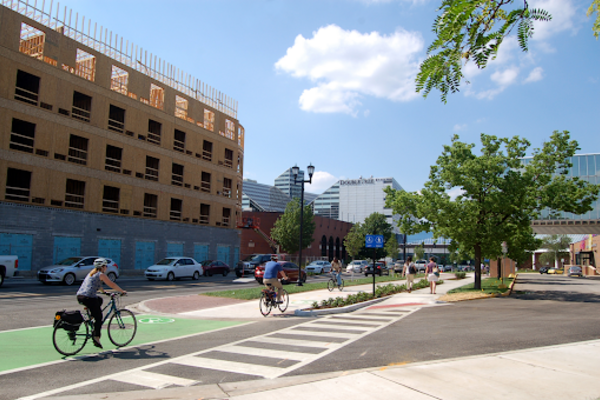
South Bend Downtown Walkability
Important to a city’s overall livability, is its walkability. This project’s aim was to build upon research conducted by the University of Louisville, assessing pedestrian comfort levels based on the biometric impact of walking in a city. After engaging directly with South Bend city planning to align project goals, a comprehensive study using biometric feedback to assess urban walkability was conducted. Due to improvements from a recent streetscape, Lasalle Ave was assumed to be a less stressful walking experience than Colfax Ave. Results from our study will be presented using ArcGIS to provide insights for future urban planning and identify urban design principles that impact walkability.
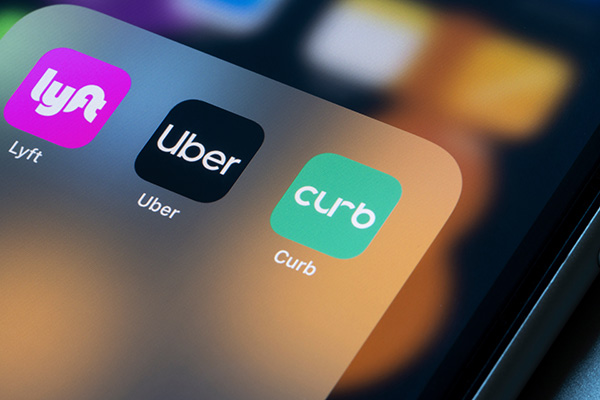
Rideshare & Gigwork Economy
Driven by the issue of transportation insecurity, our work explores the daily challenges faced by members of the South Bend community. This was done in partnership with the Commuters Trust, an initiative offering free and subsidized transportation options. Launched in September 2019, Commuters Trust was originally financed by a million dollar grant through the Bloomberg Philanthropies Mayors Challenge. To aid their expansion, we present our exploration of the dynamics of rideshare in South Bend’s transportation ecosystem.
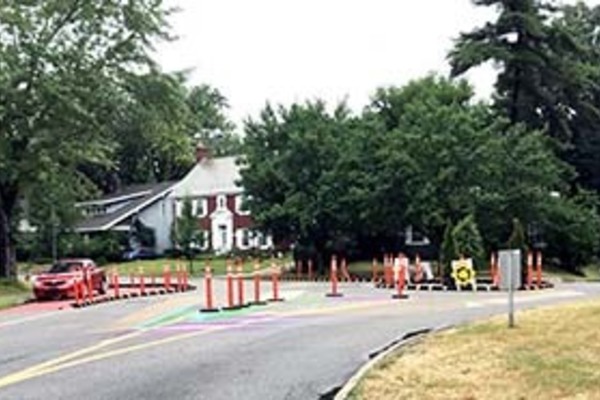
EcoGlo
The Ecoglo® Road Marker Project aims to tackle the issue of limited roadway visibility, especially during adverse weather conditions and non-daylight hours, by installing Ecoglo® RS Series Road Markers in key locations in order to enhance driver visibility. The roadway markers incorporate a photoluminescent display that is designed to provide a safe, reliable reflective light source along any transportation route without the need for electricity or upkeep. In collaboration with the City of South Bend Department of Public Works and BUC Construction Supply, Inc., a number of the Ecoglo® roadway markers will be placed in various locations in the vicinity of the Portage Ave. and Lathrop St. roundabout. Traffic data will be collected pre and post-installation and will be one of the metrics used to quantify the roadway marker effectiveness. The deliverables can be extrapolated for various roadway applications or recreational activities.
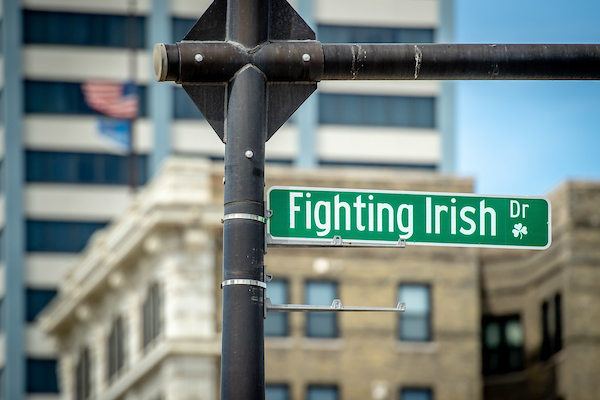
Wayfinding
The Wayfinding project strives to improve signage in downtown South Bend for pedestrians, cyclists, and motorists navigating to key attractions and landmarks. There are currently many signs in downtown South Bend directing people to locations like the Studebaker Museum, Four Winds Field, The Morris Performing Arts Center, and other notable places in the city. The signs list several destinations with arrows pointing in their direction. The objective is to facilitate navigation between these locations without reliance on electronic devices, but the current signage is often confusing. Some crucial locations lack sign placement entirely, and certain signs mislead pedestrians, rendering navigation to specific destinations via signage impractical.
Collaboration Partners
- 1Roof (Southeast Neighborhood Center)
- Church Community Services
- City of Elkhart
- City of South Bend
- Elkhart Community Schools
- Greater Elkhart Chamber of Commerce
- Hydrodigital
- Near Northwest Neighborhood Association
- NWI Food Council
- Rum Village Neighborhood Association
- Shirley Heinze Land Trust
- SOAR
- South Bend Regional Chamber
- THOR Industries
- Tolson Center for Community Excellence
- University of Notre Dame Athletics
- Young Hoosier Farmers Coalition
Interested in our work?
Learn more how to partner with the Civic Innovation Lab or engage in our community-focused internship programs by contacting us through the button below.